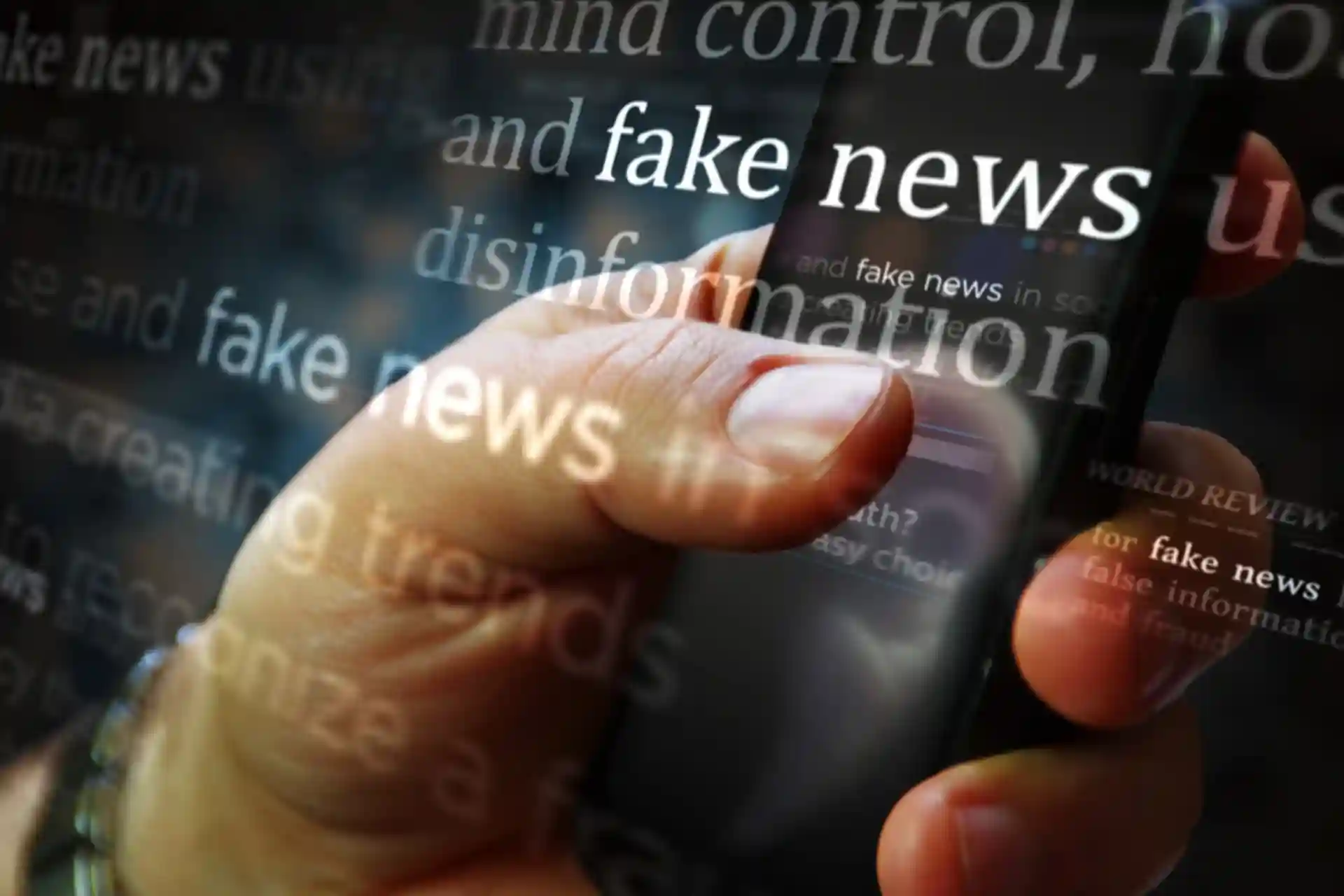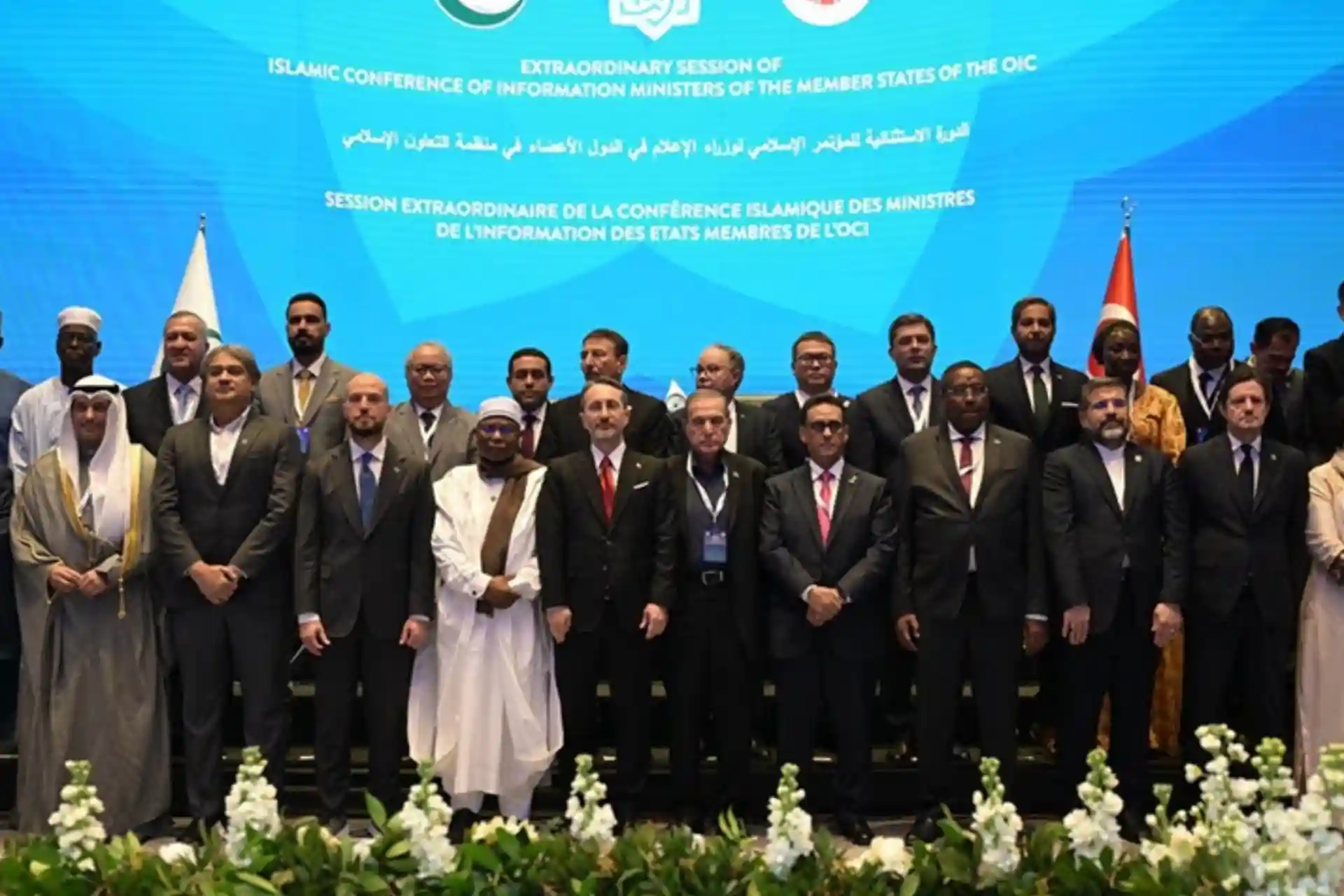Critical Thinking in the Age of Fake News
Today, conspiracies and information wars are escalating in different parts of the world. In such a complex situation, the most correct way is to take a critical approach to information, to study information sources, in short, to achieve information literacy. From the beginning, our holy religion Islam has taught us to fight against disinformation through hadiths and verses. However, knowledge in this regard has not become so relevant.
Crises and conspiracies happening in the world are not new for us. So far, we have witnessed several massacres, such as in Bosnia and Rwanda , and massive droughts and mass famines, such as in Somalia and Sudan. Violence against our Muslim brothers and sisters in East Turkestan, Kashmir, Palestine, Myanmar and many other areas continues. In addition, there are conspiracies against religion inside the country. All these events cannot but affect our thinking and worldview. Amidst such major realities, a new front has appeared in the world - disinformation, disinformation and conspiracy theories.
Islamic anthropology - that is, Islam's method of shaping human personality, is based on optimism in today's language. It turns people away from pessimism. However, at the same time , Islam promotes a realistic view of the world.
In the world there are many forms of wickedness and sinfulness. One of them is lying and deceiving people. Such behavior is strongly condemned in the traditions of our Prophet, may God bless him and grant him peace:
" The nature of a believer has various behaviors, but lying and betrayal are not among them. " (Bayhaqi, "Sunan al-Kubra")
In the Islamic moral tradition, lying is defined as:
" It is an evil (sharr) consisting of empty words of trust without any sincerity, which may possibly cause harm. Therefore, mentioning (any form of falsehood) makes one inevitably guilty . (Nuriddin al-Iji, "Risalat al-Akhlaq")
The famous U Smon scientist Tashkuprizoda said:
" If truth (sidq) was not the basis of prophethood, revelation and sharia would be invalid. Likewise, truth is the foundation of civilization ; "Any society cannot be supported without the honesty of people. "
Deliberately misrepresenting messages, blaming certain nationalities for something (like many people blamed Muslims for spreading the virus during the Corona virus pandemic) is a widespread social evil today.
Although lying and deviating from the truth should be contrary to the nature of the believer, we find that Muslims are often victims or perpetrators of misinformation.
The amount of misinformation spread among Muslims is almost the same as that of non-Muslims, and can include world politics, health and medicine, and even financial scams that mostly target Muslims. Our Prophet Muhammad, peace be upon him, warned us about disseminating information uncritically:
" It is enough for a person to tell everything he hears. " (Cited in the collections of Muslim and Abu Dawud)
The Holy Qur'an also warns us against accepting information uncritically:
" O you who believe! If a wicked person brings news, investigate it, and do not regret what you have done by causing trouble to a people without knowing it . (49-6)
Some fake news can cost lives. A fundamental principle of Islamic law and ethics, as in the medical community, is to eliminate harm. That's why we have certain responsibilities to understand what information is being given and how to get the right information so that we don't harm ourselves or others (This is called information literacy). This shows that people should have a critical approach to information. Fortunately, this knowledge has been consistently taught by the Islamic tradition for centuries.
Islamic thinking can be a real solution to the problem
If we use the word "knowing" instead of "thinking" , it will be more correct. Cognition is a technical term for the theory of human knowledge, its nature, origins, and limits. It is, in a sense, the first science of all other sciences. What is knowing and how do we know? Greek philosophy understood it as part of psychology, a discussion about the human brain. Later, this field began to be studied in Islamic philosophy and its wider history of thought. The question of how we can know things is also deeply important for theology. How can we know God, how do we understand his existence, what he wants from us and how he communicates with us? The subject of knowledge is therefore discussed in works of dogmatic and philosophical theology and philosophy of law, which are designated as "reasons of knowledge" or "sources of knowledge". These reasons are summarized in the famous 13th century Maturidi doctrinal treatise "Aqeed al-Nasafi" as follows:
(1) Cognate sensory perception (al-hawass al-salima),
(2) trustworthy news (al-khabar as-sadiq),
(3) reason/logic (al-aql).
These debates about the sources of knowledge revolve around the themes of morality and prophecy in the ancient writings. Can people independently know the full truth about the world? Thus, theologians began to distinguish between different forms and causes of knowledge. The physical world and its physical activity can be observed through the senses (his), understood with the help of the mind, in this process imagination, soul and primitive naturalness (fitrat) help. All these things can guide us towards truth and goodness. This constitutes empirical, logical and deductive knowledge (al-'ilm al-nazari wa al-istidlali). Humans also create knowledge, customs, and technology. Some natural and cultural knowledge is constantly created anew ("innovation"), some forms disappear, but in general there is an accumulation of knowledge within cultures through "messages", that is, related or transmitted knowledge (al-'ilm al-naqli). Some reports are suspicious, others are reliable. General messages can produce hypothetical or probable knowledge (zanni) and undeniable or certain knowledge (al-'ilm al-daruri). For example, knowledge of the existence of a major city such as London or a major historical figure such as Alexander the Great. So we have a constantly created and shared knowledge of the world around us, both of which give us multiple options for how to make sense of the world. But can it give us a complete explanation of the world? Is there an existence beyond the physical world? How can we gain accurate knowledge of the non-physical world? Does the world have a purpose and can we know its end?
We certainly need help to fully understand our moral duty, to learn what God expects of us, and how to act in this world. Rather, we need prophets! But how do we know that the information is truly from God? Many people claim to be prophets. There are many religions. To know who is sent by God that his information is truly from God, we need the marks of trust that only God can create. Miracles, supernatural events can be performed only by the Creator of the world.
How do we recognize them and gain knowledge about these signs? Here again we are faced with the limitations of our human senses (observing miracles), our intellect (separating truth from falsehood and understanding their meanings), and common knowledge (telling others).
Also, prophets bring information, or revelation, that we need to maximize our understanding of theology. Thus, we need to separate the general information regarding the prophets and their revelations into the more likely specific information. We need to check that they match our understanding and evaluate the overall messages. General messages must be graded from uncertain to probable to certain knowledge because different aspects of our lives require different degrees of certainty.
Therefore, we need to use these three sources of knowledge in everything and apply them critically, because we are responsible for the knowledge we receive, especially the knowledge based on our actions. We should also know how to critically examine the content of common knowledge and the judgments applied to it. Here too, the Islamic tradition guides us.
Right Reasoning: The Centrality of Logic in Islamic Education
From its earliest days, the Islamic civilization had a systematic method of correct reasoning typical of the intellectual tradition. However, from the 11th century, the established system of Arabic logic (ilm al-mantiq) became the main intellectual tool for reasoning and critical analysis. Islamic scholar Abu Hamid al-Ghazali, in his famous treatise on the philosophy of Islamic law, "The Separation of Legal Jurisprudence" (al-Mustafa min ilm al-usul), writes that Islamic logic is not only a means of correct reasoning. This is what he says about logic:
[Logic] is the introduction to all sciences, and one who does not understand it should never consider his knowledge reliable.
In the tradition of Islamic thought, logic is the main tool for scientific debate and discovery, guaranteeing a certain degree of accuracy in scientific reasoning and protecting against implicit assumptions and logical fallacies. As a system of rules and guidelines for correct reasoning, logic covers topics such as how to form correct definitions and judgments and how to construct correct arguments in the form of syllogisms.
What are the main conclusions of the given argument - how is it conceived? Do we know that the correct definitions and judgments are being used in this vision? Are we clear about what we mean when we talk about a term?
Logic as a system for eliminating false beliefs, hasty assumptions, or illogical arguments can provide us with real logical direction in our modern world full of fake news and disinformation.
Logic is, in fact, part of the body of thought in the Islamic tradition for "right thinking" (that is, correct reasoning) in all intellectual endeavors. In addition to logic, this collection includes the sciences of discussion (ilm al-bahs wa-al-munazara), rhetoric (ilm al-baloga), and semantics (ilm al-wad). Together, they are called the "intermediate sciences" (ʿulum al-ala), and for the student of Sharī'ah knowledge, there is a transition from "higher sciences" such as Islamic law (fiqh), legal philosophy (usul al-fiqh), Qur'anic exegesis, or philosophical theology (kalam) are the main elementary subjects that he should study first.
Logic occupied a central place in the curriculum of classical Muslim madrasahs. Despite Orientalists' claims that logic ceased to exist in the Islamic world after the 14th century, recent academic research has shown that logic actually flourished into modern times. We, as Muslims, should appreciate and learn this tradition, especially in a time when misinformation, misconceptions and conspiracy theories are prevalent, and this duty becomes farz for us.
Abbreviated and translated from "Yakyn Institute" website.



